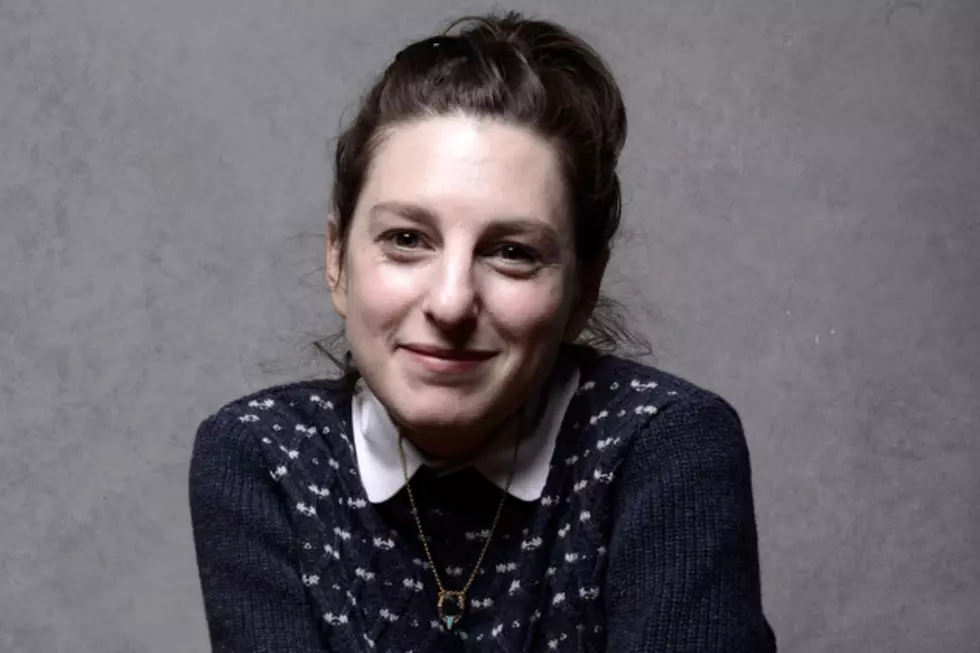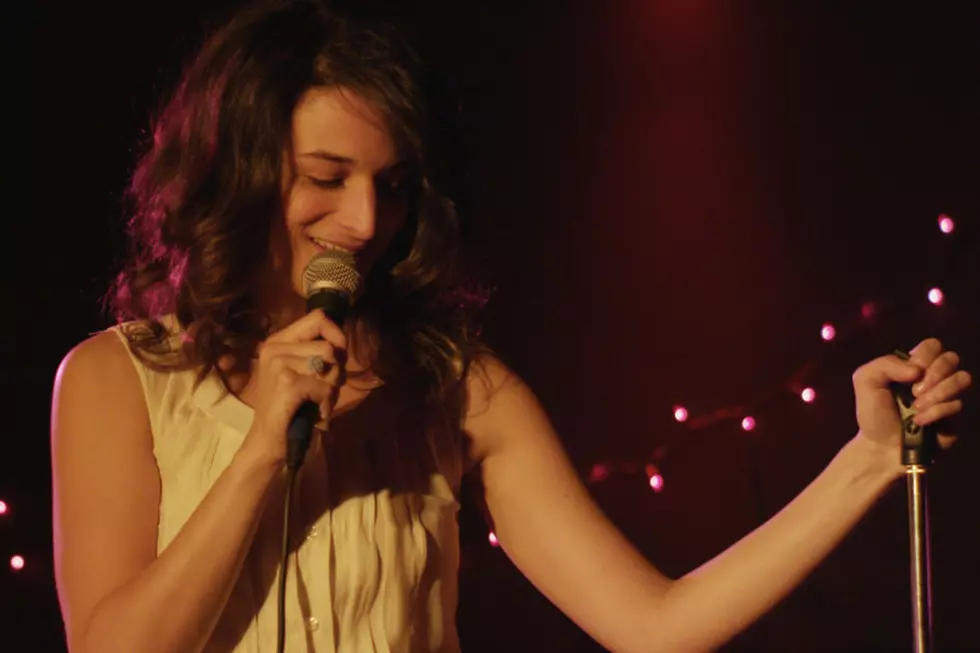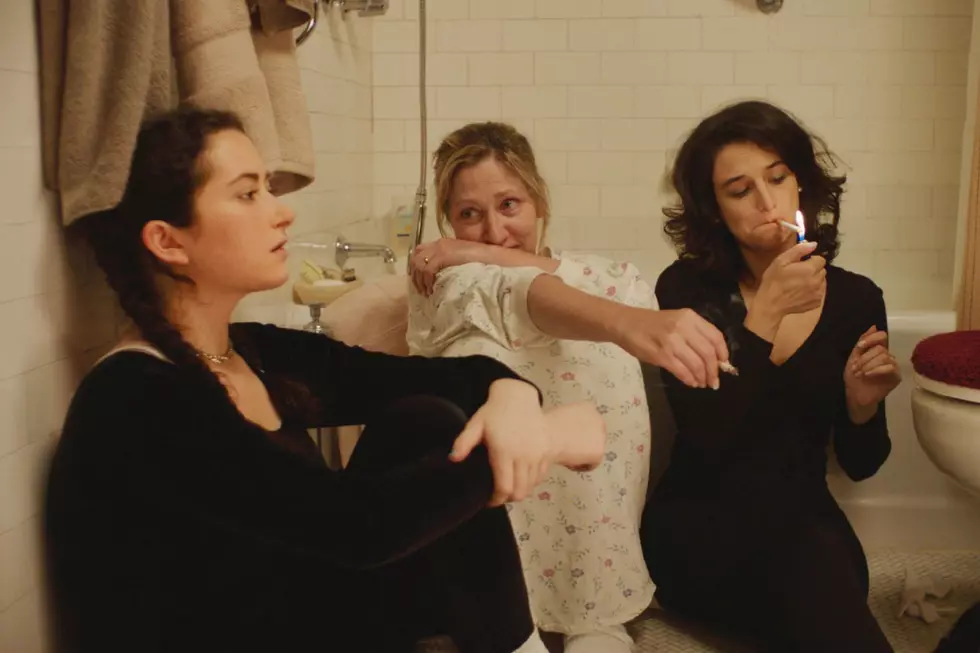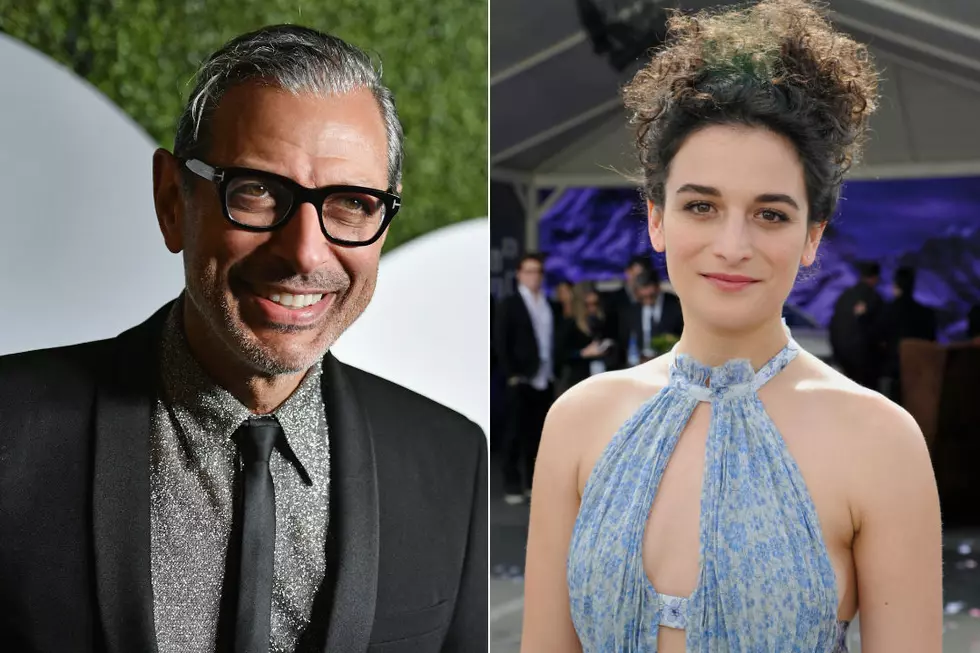
‘Obvious Child’ Director Gillian Robespierre on Abortion, Controversy and Cookies That Look Like S—
If there's a way to emote both overwhelming exhaustion and unadulterated joy on one's face, somehow, Gillian Robespierre has pulled off that unique distinction. Shortly after meeting the first time director of the critically acclaimed 'Obvious Child,' she shows me a thick packet, which is just today's schedule. "I think I would have joined a gym and built up some sort of stamina. Or quit drinking or something," she responds when I jokingly ask if she now has second thoughts about being a director in the spotlight. Then she quickly adds, as to not come off as someone who is upset that her movie is popular, "I love it. I'm really, really excited and I don't want to come off whiney or complaining, because this is so incredible. And Jenny and I are just having a blast doing this."
The Jenny she mentions is Jenny Slate, the comedian and former 'Saturday Night Live' cast member who stars in 'Obvious Child' as Donna -- a comedian who, after a one night stand with a man named Max (Jake Lacy), decides to have an abortion, then works through her emotions in front of an audience as part of her stand up routine. This has earned 'Obvious Child' the title of "The Abortion Comedy,' which is attention-grabbing, but, as Robespierre explains, not altogether accurate.
Before I saw this at Sundance, it was basically "Jenny Slate is in a movie. Great!"
Ha. I love hitting Jenny Slate fans. Because we made the short together, but then her fans came after ... but it's nice to sneak attack the Jenny Slate fans.
Correct me if I'm wrong, but I feel with the subject matter of this film, you're not trying to seek out controversy, but you're ready for it if it happens.
Definitely not seeking it out -- I'm not that type of person -- but I just want to tell a straightforward story. And a story that would sort of talk about a choice that's very unspoken in movies and also in real life. I think women are felt to feel shame around abortion and the choice to have the procedure. And regret and there are other things: there are a hundred different outcomes and feelings -- millions, not even hundreds -- and this is one woman's story and this is the story I wanted to tell. And people who actually see the movie will realize it's not a "romantic comedy about abortion" story.
It's not like Donna isn't conflicted about her emotions.
No. And I think she's quite mature about it and responsible. She talks to all of the women in her life, sort of gathering information. Like, "How is this going to feel? What is the procedure like?" I think that's a very mature thing to do.
In a lot of movies, the happy ending is when they don't have the procedure. One of the first times I saw abortion addressed in a movie like this was in 'Fast Times at Ridgemont High,' and that was a long time ago and there haven't been a lot since.
It's such a beautiful moment. I think it comes up in films, it's just on the peripheral. Another Jennifer Jason Leigh film, 'Greenberg,' they call it a D&C. Which is the clinical term [Ed. note: short for "dilation and curettage"], but D&C also happens for like 80-year-old women who need to scrape their uterus out. Sorry to get intense about it, but a D&C is not just an abortion -- even though it is the same procedure. And I thought they handled it really well in that movie, too. But, you're right, it's been a long time since 'Fast Times' and there hasn't been many movies that tackle it.
Which also had a woman director, Amy Heckerling.
Oh, she's the best! But it was written by a young Cameron Crowe and I don't know the stories behind that scene and if it was more influenced by Amy or the script or a true amazing collaboration between the two. I'm going to go with "amazing collaboration between the two."
Did that influence you at all?
No. But 'Fast Times' has influenced me in other ways. [A tray of cookies is brought into the room.] I'm going to try this guy.
That looks like the most visually appealing choice.
Yeah, that one looks like deer shit. That's not going to come out easily.
It does look like deer shit, actually.
I think they're trying to kill us.
There's one specific scene I want to ask about. When Max finds out Donna had an abortion, it's when she's telling an entire audience during her standup set. Max gets mad and leaves. I have conflicted feelings about this scene because I see both of their sides.
Well, we understood going into it that that could come off very poor for Jenny's character, Donna. She could be looked at as a self-centered douchebag. But, I think the way it was acted out and edited, is she was going to have that bit no matter what if he was there or not. It was really for her and for her to connect to an audience and for her to share what she's going through ... it wasn't for him, but, yeah, I would walk out, too. It was really scary and embarrassing and I think they kind of hit on that at Planned Parenthood the next day when they are both apologizing.
Why did you think of Jenny Slate for this role? And you can't say "she's great." Because she's not known for being able to play a dramatic role. Did you know she could play a dramatic role this well?
No. She had never been in a film before and never acted in a film, but when I saw her perform at Big Terrific, she was telling these stories in a hilarious and heart-wrenching way. It just seemed obvious that she could do it. But we didn't know; no one knew. When she gets dumped in the short and she's crying, she's amazing in it. And it's like, "Oh my God, she has it." Of course she has it.
Mike Ryan has written for The Huffington Post, Wired, Vanity Fair and GQ. He is the senior editor of ScreenCrush. You can contact him directly on Twitter.
More From ScreenCrush









